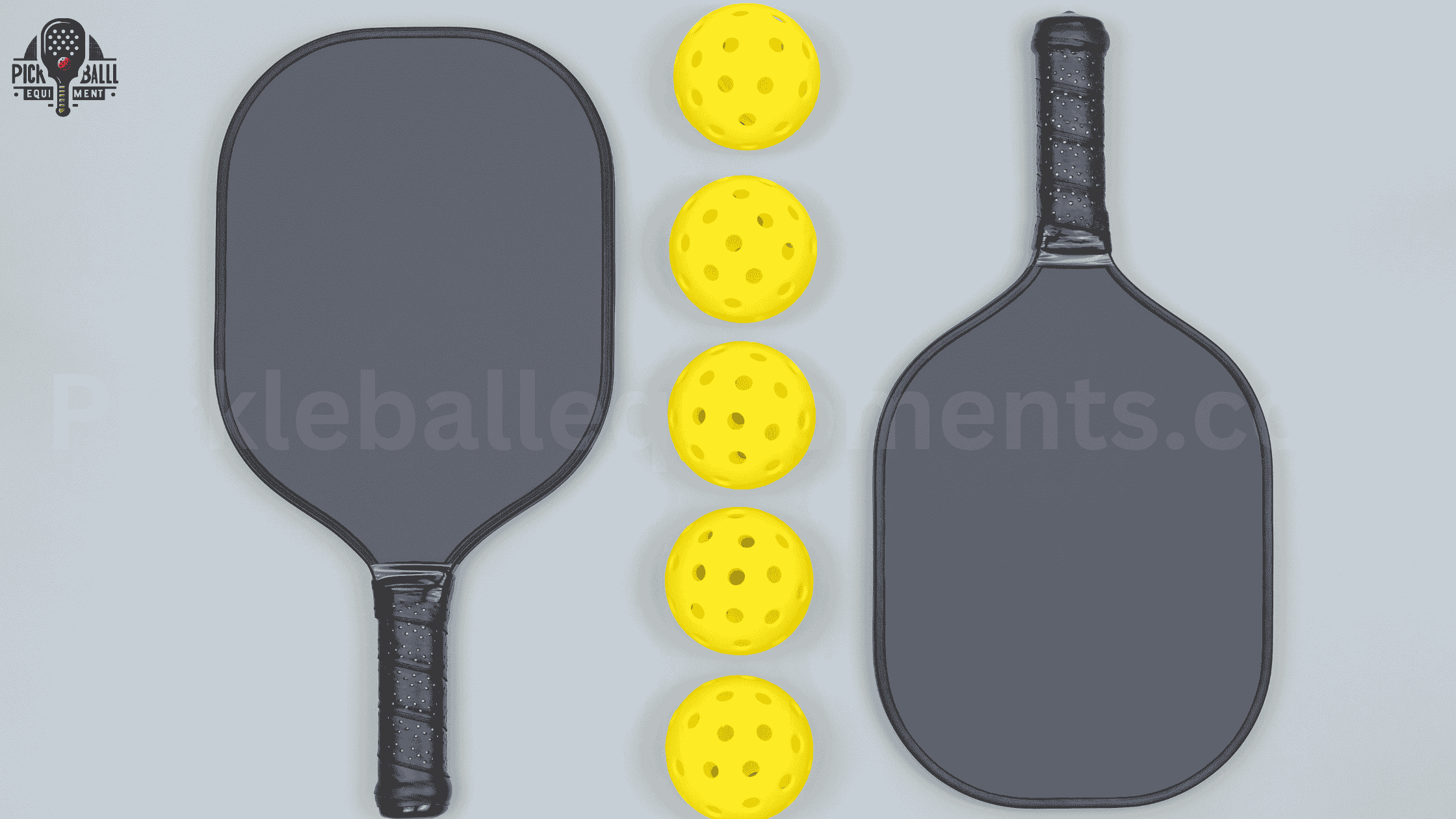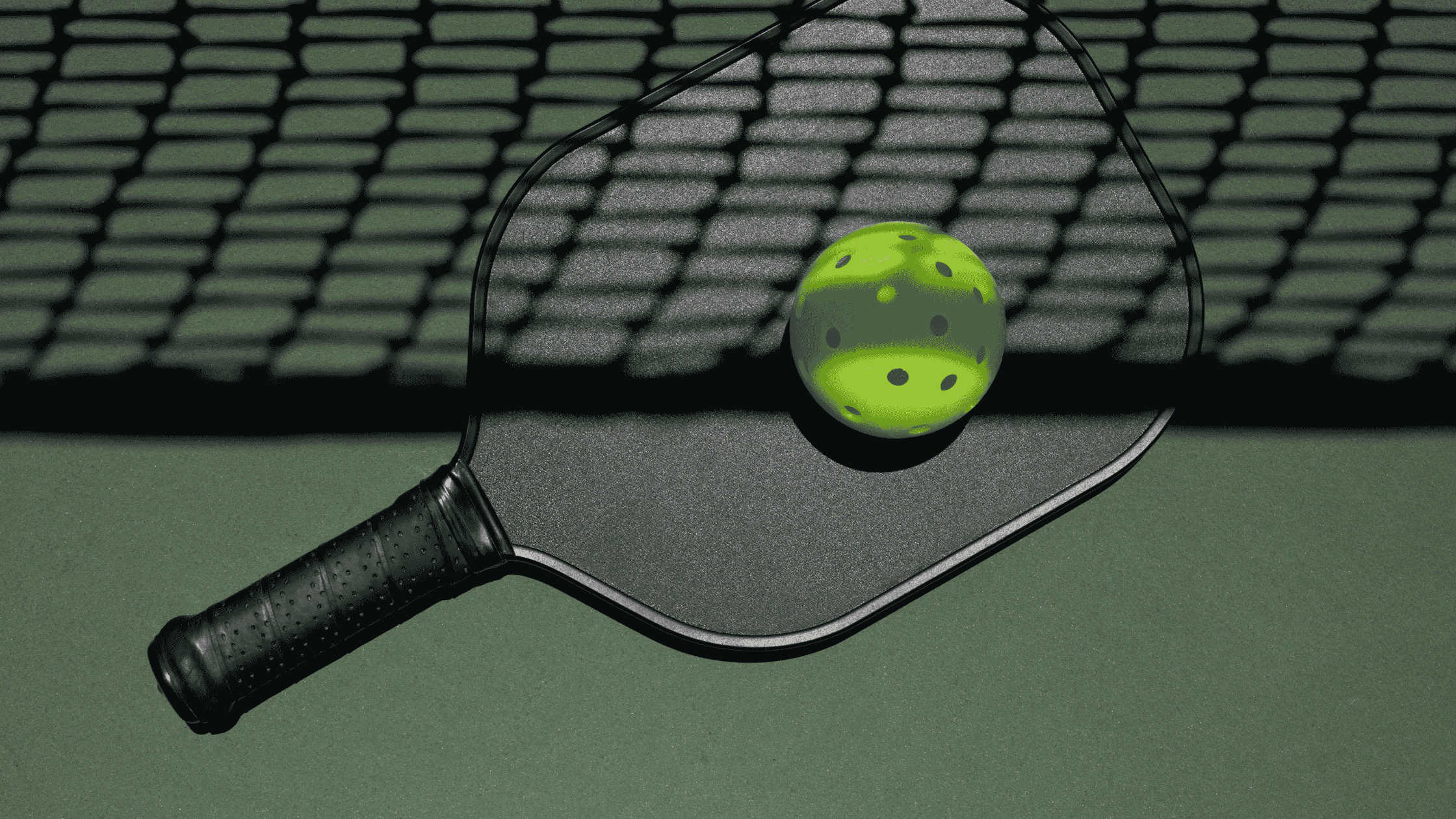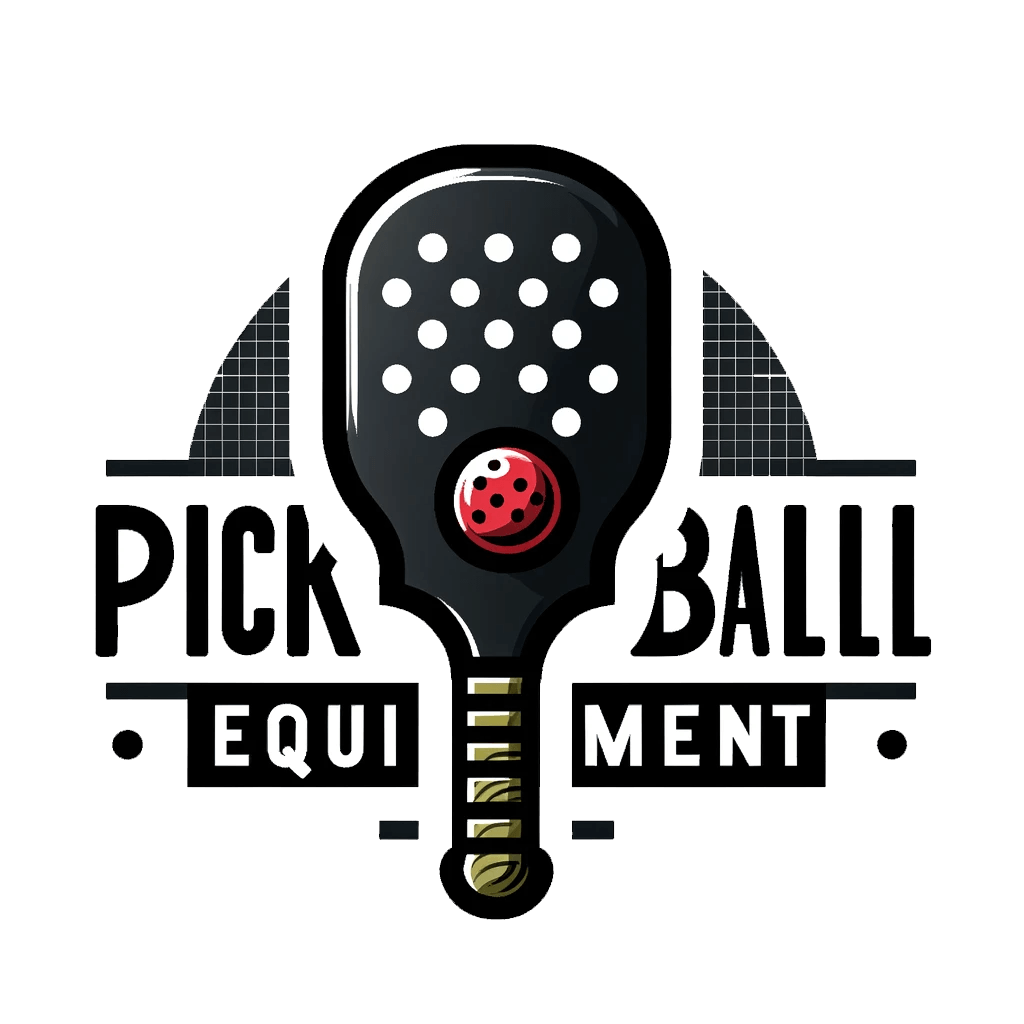Understanding how do you get ranked in pickleball and how pickleball rankings work is crucial for players to gauge their skill level, set goals, track progress, and improve their score in the tournament and league. The pickleball rating system provides a standardized way to compare players’ abilities, determine their score, and rank them in a tournament or league. It’s used in tournaments and leagues.
Knowing how to score and get ranked in the pickleball league tournament can significantly impact a player’s standing in the world pickleball rankings. Volley skills are crucial for success in the sport. This applies to professional and amateur players alike. This post delves into the intricacies of pickleball rankings. This blog post offers insights for both seasoned and aspiring pickleball players participating in a volley tournament. It provides tips on improving shots and executing the dink shot effectively. They seek to elevate their ranking status.
Key Takeaways
- Ratings categorize players by ability and tournament score.
- Volley skills crucial for pickleball tournament success.
- Regular self-assessment helps gauge pickleball skill level.
- Playing against higher-rated opponents improves skills.
- Understanding ratings key for pickleball progress.
How do you get ranked in pickleball? Step-by-Step Guide

Understanding Pickleball Skill Ratings
Importance of Pickleball Skill Ratings
Pickleball skill ratings are crucial for categorizing players based on their ability and score in the tournament. The ability to volley effectively can greatly impact a player’s score in pickleball tournaments. These ratings help ensure fair competition by matching players of similar abilities and general pickleball skill levels. The score is determined based on a player’s ability and their pickleball skill level. For instance, a player with a higher pickleball skill level and the ability to volley effectively will be matched against others with comparable expertise. This ensures a fair and competitive environment where players can score points with their well-placed shots. This fosters balanced and enjoyable gameplay.
Skill ratings are crucial for maintaining fairness and competitiveness in pickleball tournaments. These ratings help determine the ability of amateur pickleball players and ensure that matches are balanced. They allow players to compete in pickleball tournaments against opponents who possess similar levels of ability and score, thanks to the pickleball rating system. This prevents lopsided matches. In these matches, professional pickleball players often outscore amateur pickleball players due to their higher general pickleball skill level. This creates more engaging games. It also motivates players to continually improve their skills. They do this to progress through the pickleball skill levels and improve their ability to score.
Different Organizations’ Rating Systems
Different organizations may have slightly different rating systems. However, the underlying principles remain consistent across the board. For example, the USA Pickleball Association (USAPA) utilizes a 12-point rating system ranging from 1.0 (beginner) to 5.0+ (professional). On the other hand, the International Federation of Pickleball (IFP) takes a similar approach. However, it uses an 11-point scale.
Despite these slight variations, all these systems share common goals in the context of pickleball tournaments, pickleball themselves, and professional pickleball players. Organizations like USA Pickleball frequently pursue these objectives. They want to get a good idea of how good each professional pickleball player is and make sure that everyone has a fair chance to win in games or just for fun. The pickleball rankings provided by USA Pickleball help assess the skill level of players and determine fair competition.
Everyone who plays pickleball and wants to see how they’re doing and how well they can compete at their level needs to know how skill scores work. This is essential for professional pickleball players participating in USAPA or IFP tournaments, local club events, and beyond to assess their pickleball skill rating.
Acquiring Your Initial Pickleball Rating
Participating in a Rating Clinic
To get ranked in pickleball, beginner players often need to participate in a rating clinic or evaluation session. These USA pickleball sessions are designed for players to showcase their skills and abilities in the sport. During the clinic, players engage in matches or drills that help evaluators assess their performance.
For new players, these clinics are very important because they give them a chance to show off their style and skills. This is crucial because the initial official rating is typically based on how well players perform during these sessions.
Honesty During the Rating Process
When seeking an official rating, it’s vital for beginner players to be honest about their skills and experience level. If you lie about your skills as pickleball players, you might end up in the wrong place, which could affect how you play in the future.
Being honest about one’s skill level ensures that the number rating accurately reflects how skilled pickleball players are. This allows pickleball players to compete against other pickleball players who are at a similar skill level, ensuring fairness and enjoyment when participating in the PPA tour or other competitive sites.
Overview of UTPR, DUPR, and UTR in Pickleball
Different Rating Systems
In the world of pickleball, there are several rating systems used to evaluate players’ skills. They include the USA Pickleball Tournament Player Rating (UTPR). They also include the Dynamic Universal Pickleball Rating (DUPR) and the Universal Tennis Rating (UTR). Each pickleball system employs its own unique approach to assess pickleball player performance and assign ratings. For instance, UTPR focuses on tournament play results to determine a pickleball player’s skill level.
Players who want to join tournaments and events must understand these different rating systems. It is crucial. By understanding how each system works, players can make informed decisions. Pickleball players can choose events that align with their skill levels and goals.
Navigating Tournaments
For example, pickleball players with a high UTPR rating may choose to enter advanced-level competitions. This is because of successful tournament performances. There, they can face opponents of similar skill levels. However, understanding the DUPR or UTR ratings allows players to explore alternative events. This might better match their abilities.
Pickleball enthusiasts should familiarize themselves with these rating systems. This will help pickleball players strategically plan their participation in tournaments. It will ensure an enjoyable and competitive playing experience.
Locating and Validating Your Pickleball Rating
Finding Your Rating
How do you get ranked in pickleball? Start by checking official websites or reaching out to relevant organizations for pickleball players. They provide an accurate rating system for players. These platforms offer a comprehensive view of pickleball players’ skills and performances. They allow pickleball players to understand where they stand in the rankings.
You can also find your pickleball rating by contacting local clubs or associations. They organize tournaments. Pickleball players often maintain records of player ratings and can guide you on how to access this information.
Validating Your Rating
It’s crucial to validate your pickleball rating periodically. It may change over time with improved skills or participation in tournaments. By doing so, you ensure the information about your skill level is up-to-date and reflective of your current abilities.
Some organizations offer online platforms where you can easily update and track your accurate rating. This allows players to have real-time access to their ratings. It’s convenient for them to monitor any changes or improvements in their performance.
Self-Assessment and Determining Your Skill Level

Factors to Consider
When determining how you get ranked in pickleball, it’s essential to start with a self-assessment of your skills. Look at aspects such as consistency, shot selection, strategy, and overall court awareness. Assessing these factors will help you understand where you stand in terms of skill level. For instance, your skill level is probably better if you consistently make accurate shots and know a lot about how to play the game.
Asking more experienced players or teachers for feedback can help you improve how you play on the court. Their observations can offer an external perspective on your abilities and areas for improvement. Incorporate their feedback into your self-assessment. It will give you a more comprehensive understanding of your skill level.
Using Skill Assessment Sheets
The use of skill testing sheets is another good way to figure out how good you are at pickleball. These sheets usually list different parts of the game. Players can rate themselves on things like how well they serve, control the shot, or move their feet. Making use of these sheets gives you an organized way to check your skills and shows you where you might need to improve.
Calculation and Importance of Pickleball Skill Ratings
Understanding Skill Ratings
Pickleball skill ratings are crucial in the sport. They determine a player’s level based on their performance indicators. These indicators include match results and opponent strength. The rating system ensures balanced matches and fair tournament seedings.
The skill rating is not just a number; it represents a player’s abilities and competence on the court. It reflects how well you perform against opponents of varying skills. This is essential for creating competitive games.
Getting a higher skill rating lets you compete and find chances in pickleball at a higher level. As your rating increases, you gain access to more challenging tournaments where you can further enhance your skills.
Strategies for Improvement
To improve your pickleball rating, focus on honing specific aspects of your game. For example, improve shot accuracy, court positioning, footwork, and decision-making under pressure. Consistent practice with players of different skill levels helps in adapting to varied playing styles.
Another effective strategy is seeking guidance from experienced coaches or mentors. They can provide personalized feedback to improve your weaknesses and enhance your strengths.
Engaging in regular competitive play also contributes significantly to skill enhancement. Participating in local tournaments or leagues exposes you to diverse opponents and challenges. This helps you improve your overall game proficiency.
-
Regular practice with diverse opponents
-
Seeking guidance from experienced coaches or mentors
-
Engaging in regular competitive play
Improving Your Pickleball Rating Strategically
Targeted Practice
Engage in specific practice sessions to enhance your pickleball skills. Identify weaknesses such as backhand drives, volleys, or drop shots. Work on these areas during dedicated training sessions. For instance, if you struggle with hard volleys, focus on drills that improve your technique and power in the volley zone.
Practice regularly with a partner who can help you work on these specific aspects of your game. Concentrate on targeted improvement. Efficiently address areas holding back your rating.
Competing Against Higher-Rated Players
Another good way to improve your tennis skills is to play against people who are better than you. When facing skilled opponents, it forces you to adapt and develop new strategies in response to their gameplay.
Competing against higher-rated players exposes you to different styles of play. It allows you to observe advanced techniques firsthand. This exposure can significantly enhance your abilities and understanding of the game.
Universal Pickleball Ratings Organizations and Their Role
Establishing Rating Guidelines
Various organizations oversee pickleball ratings. For example, USA Pickleball (USAPA) and the Professional Pickleball Registry (PPR). These organizations play a crucial role in establishing dynamic universal pickleball ratings. They set clear guidelines for rating systems, ensuring fairness and accuracy in player rankings. The USAPA has specific criteria for different skill levels. This helps maintain consistency across different clubs and tournaments.
These guidelines provide a framework for players to understand where they stand in terms of skill level. This allows them to track their progress and work towards improving their game. These organizations provide standardized criteria for rating players. This contributes to creating a more cohesive and competitive pickleball community.
Promoting Fair Competition
These organizations set rating standards. They also conduct clinics and workshops. They aim to educate players about the rating system. By doing so, they ensure that all participants have a clear understanding of how ratings are determined. This transparency promotes fair competition within the sport.
Moreover, these organizations oversee sanctioned tournaments where players can compete under regulated conditions. This ensures that matches are conducted according to established rules and guidelines. This further contributes to fair competition among players.
Conclusion
How do you get ranked in pickleball? Pickleball rankings and ratings are complex. But it’s crucial to understand your skill level and how to improve for personal development in the sport. Players have different options to gauge their abilities and track progress. They can use various rating systems, like UTPR, DUPR, and UTR. How accurately one assesses their own abilities can be a good indicator of their skill level. Over time, strategic efforts to improve can lead to a better rating. Players working with universal pickleball scoring organizations can access useful tools. They can also improve their skills. They also have the chance to improve their skills.
Take the time to learn about scoring systems and ways to improve your pickleball skills as you continue to play. No matter how experienced you are as a player, regular self-evaluation and focused training can help you reach new levels of success. Take on the challenge of getting better, and if you want to step up your game, look for help from respected rating agencies.
I hope you like How do you Get Ranked in Pickleball. If you like How do you Get Ranked in Pickleball then share it with others 🙂 because sharing is caring.
FAQ’s
How are pickleball rankings and ratings determined?
Rankings and scores in pickleball are usually based on how well a player does in tournaments, leagues, or matches. Different groups have their own scoring systems that look at things like wins and losses, the skill level of the opponent, and the margin of victory.
What is the significance of UTPR, DUPR, and UTR in pickleball?
There are several well-known rating methods for pickleball players. Examples include USAPA Tournament Player Ratings (UTPR), Dynamic Universal Pickleball Rating (DUPR), and Universal Tennis Rating. These ratings help players understand their current standing and track their progress over time.
How can one improve their pickleball rating strategically?
To improve a pickleball rating strategically, players should focus on consistent practice. They should also play matches against opponents with higher ratings. Strategic enhancement can also be done by looking at weaknesses, getting coaching or a mentor, and setting clear goals for growth.
Are self-assessment tools available for determining one’s skill level in pickleball?
Yes! Many resources offer self-assessment tools that allow players to evaluate their skills independently. These tools usually test many areas of a player’s game. They look at things like technique, shot selection, court placement, and decision-making. This gives a full picture of their skills.
